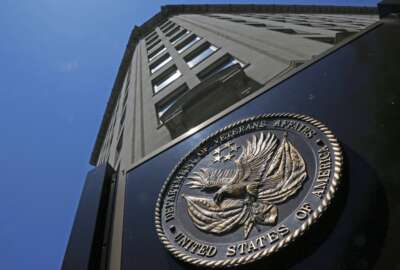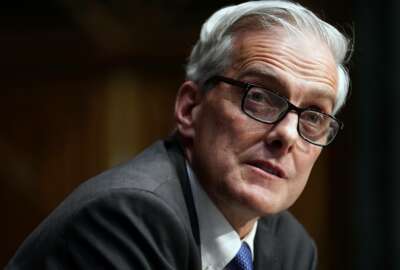VA to give veterans more ways to leave digital legacy when they’re gone
The Veterans Legacy Memorial allows surviving friends and family members to share memories of a veteran in their life who passed.
The Department of Veterans Affairs, as it does every Memorial Day, is paying respects to the more than 4 million veterans laid to rest at cemeteries in its care.
VA’s National Cemetery Administration is hosting Memorial Day ceremonies at more than 130 national cemeteries, to commemorate service members who died during their military service, as well as all veterans buried at national shrines.
The VA operates 155 national cemeteries and 34 soldiers’ lots and monument sites in 44 states and Puerto Rico. About 4.1 million veterans, from the Revolutionary War to the present day, are buried in VA national cemeteries.
“We can never underestimate or underappreciate the sacrifice made by the brave men and women who died in service to our country,” former Under Secretary of Memorial Affairs Matthew Quinn told reporters on May 20, shortly before his retirement from the agency.
“Likewise, it is our duty to show our appreciation to our Gold Star family members. We can never repay them for their sacrifices. The least we can do is memorialize those heroes with some solemn words, laying wreaths to remember them and pausing in silence to pray for their souls,” he added.
Beyond providing a final resting place for veterans, NCA is giving their survivors more options to preserve records of their service achievements.
Launched in 2019, the Veterans Legacy Memorial allows surviving friends and family members to create an online page where they can share memories and photos of a veteran in their life who has passed.
Soon, the site will give living veterans more ways to leave behind digital records that will live on after their deaths.
VLM now includes a memorial page for nearly 10 million veterans laid to rest in all VA national cemeteries, VA grant-funded cemeteries, Defense Department-managed cemeteries (including Arlington National Cemetery), Park Service national cemeteries, and thousands of private cemeteries where veterans have received a VA-provided gravesite marker since 1996.
“This benefits the veteran’s surviving family members, as they can read the tributes and know that fellow citizens understand and appreciate the veteran service,” Quinn said.
Quinn said NCA plans to keep expanding and improving VLM. By the end of the year, the agency plans on adding options that will allow living veterans to upload their own photos and other memorabilia, “so they can have a hand in preserving their own legacies.”
“A veteran can go in and fill out the information on their service that they want the family to be aware of, or others to be aware of. And then that page, upon the veteran’s passing, will go live,” Quinn said.
About 94% of all veterans live within 75 miles of a national or grant-funded cemetery — close to NCA’s goal of 95%.
“NCA will continue studying demographic shifts and related information to ensure we are providing the best possible coverage,” Quinn said.
Quinn briefed reporters shortly before he stepped down from the role. His last day was May 23.
“I’m very proud of what NCA has accomplished over the past three years —especially reducing wait times for applications, improving our IT systems overall, maintaining our outstanding customer satisfaction through unprecedented challenges, surpassing the $1 billion mark in grants to help states territories and tribes establish and maintain cemeteries, and so much more,” he said.
NCA ranks top among all public and private organizations on the American Customer Satisfaction Index — a distinction it’s held for eight years in a row.
“It’s obvious why this organization has scored the highest ever on the American Customer Satisfaction Index. I know NCA will continue to top that survey,” Quinn said.
More than 70% of NCA’s 2,400 employees are veterans — the highest percentage of any federal agency.
“Our team members, whether or not they’re veterans, understand the importance of providing vital honors, and dignified burial benefits. Meeting these team members and working with them has been the highest honor and the most fulfilling experience for someone who has had many great honors and experience.”
Copyright © 2025 Federal News Network. All rights reserved. This website is not intended for users located within the European Economic Area.
Jory Heckman is a reporter at Federal News Network covering U.S. Postal Service, IRS, big data and technology issues.
Follow @jheckmanWFED






